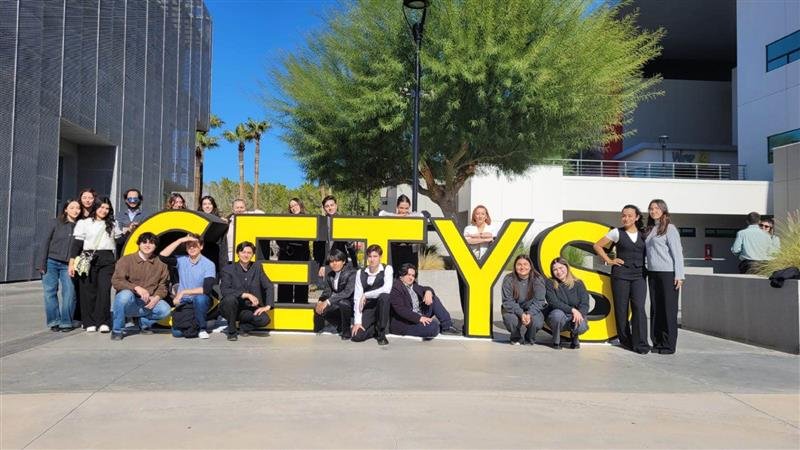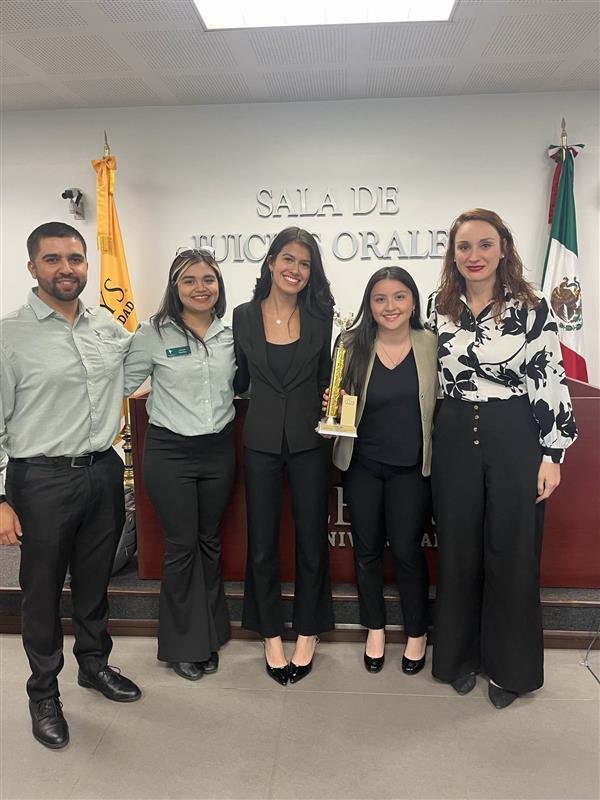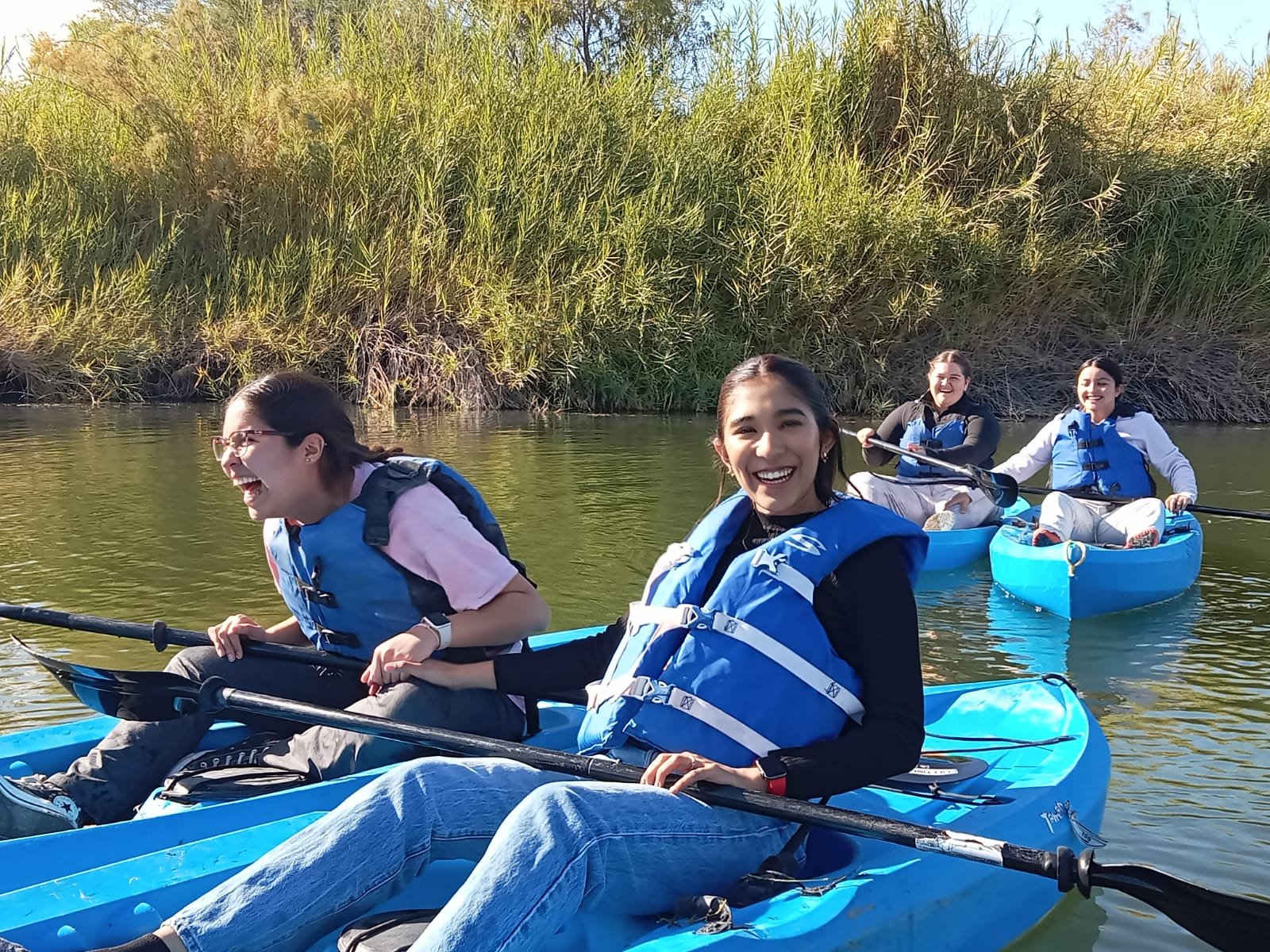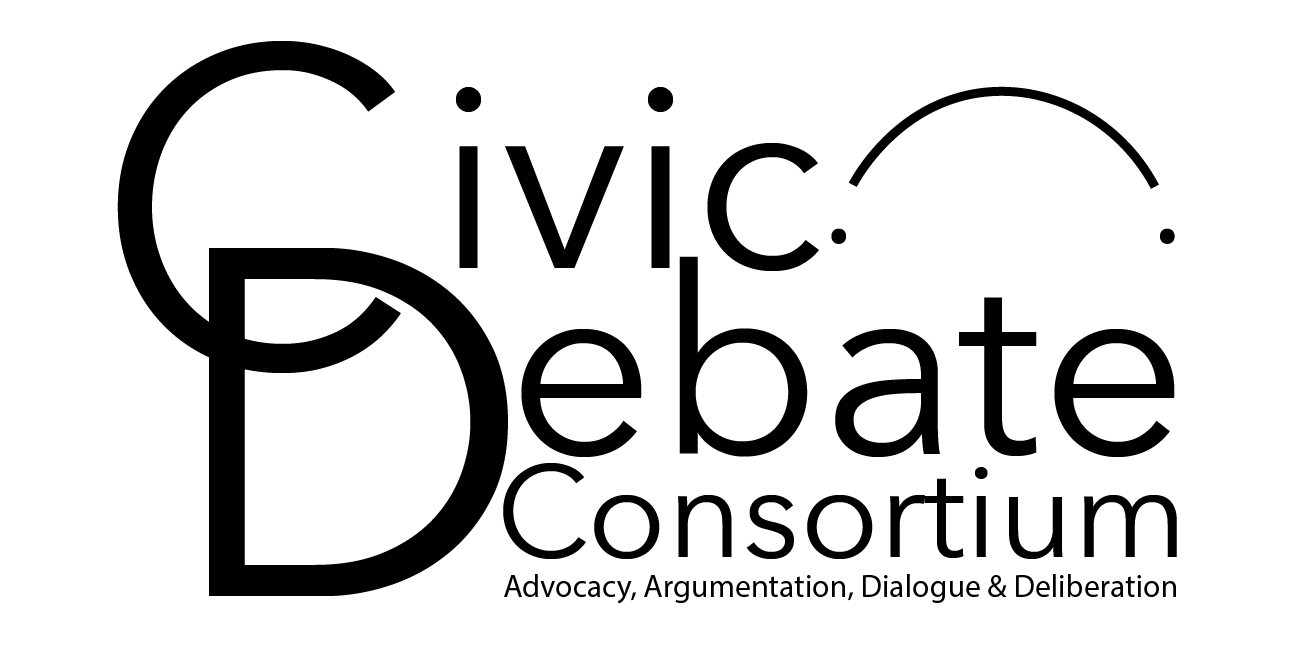LEGADOS es un evento de Debate Cívico en español inaugurado en mayo de 2018 por Marion W. Hart, Chris Skiles y John Patrick del Equipo de Debate de Cal Poly. Destaca los lazos históricos que unen a los californianos en los Estados Unidos y México. Este foro mantiene la tradición del Debate Cívico al encomendar a los estudiantes defensores la tarea de elaborar propuestas para resolver problemas del mundo real y utilizar a expertos en el campo para evaluar el desempeño de los estudiantes. También es un lugar que brinda a los estudiantes una oportunidad única para abogar por cuestiones que afectan directamente a sus comunidades en español. Como tal, sirve como un campo de entrenamiento para estudiantes multilingües, ofreciéndoles oportunidades para perfeccionar sus habilidades oratorias, de persuasión y retórica. Nuestro objetivo es explorar colectiva y competitivamente políticas, tendencias culturales e ideologías que afectan a los californianos, ya sean de Baja California o Alta California, creyendo que a través de la colaboración binacional, evaluamos y elevamos colectivamente los asuntos que nos afectan a todos.
LEGADOS 2025-2026
Legados 2025-26 reunirá a estudiantes de manera virtual para dialogar sobre el impacto de los desastres naturales que afectan significativamente a Estados Unidos y México. Este año escolar contamos con la dirección y participación de tres instituciones: el Equipo de Debate de Cal Poly, la Sociedad de Debate de CETYS en Mexicali y Pepperdine Debate.
En los últimos tres años, este evento ha invitado a las y los estudiantes a razonar y analizar temas como la violencia, la distribución del agua y las implicaciones de la visa H-2A, fomentando así el pensamiento crítico y la abogacía cívica en español.
-
México y Estados Unidos comparten una larga historia de cooperación para responder a desastres y reconstruir economías tanto en la región fronteriza como más allá. Huracanes, terremotos, incendios forestales e inundaciones no respetan fronteras nacionales, y ambos países enfrentan estos riesgos en común. Para gestionarlos, México y EE.UU. han desarrollado acuerdos, marcos institucionales y esfuerzos conjuntos de planeación que permiten preparación, respuesta rápida y recuperación.
Sin embargo, la respuesta a desastres no se trata solo de instituciones y políticas: también se trata del trabajo. El trabajo visible incluye al personal de emergencia, soldados, ingenieros y agencias federales como FEMA en Estados Unidos o SEDENA en México. El trabajo invisible, en cambio, es igualmente esencial: cuidado comunitario, trabajo no remunerado de mujeres en albergues, brigadas voluntarias y jornaleros migrantes que retiran escombros y reconstruyen viviendas. Estas contribuciones suelen ser invisibilizadas o no remuneradas, aunque sostienen gran parte de la recuperación en ambos lados de la frontera.
En cuanto a la cooperación binacional, varios acuerdos formales constituyen la base. El Acuerdo de La Paz de 1983 comenzó como un pacto ambiental pero se amplió a la gestión de desastres, vinculando a SEMARNAT y a la Agencia de Protección Ambiental (EPA) de EE.UU. en la planeación de contingencias. El Plan Conjunto de Contingencias (JCP) estableció protocolos operativos para emergencias fronterizas, con mecanismos como el Equipo de Respuesta Conjunta, encargado de entrenamientos y operativos binacionales. El Acuerdo de 2011 sobre Cooperación en Manejo de Emergencias en Casos de Desastres Naturales y Accidentes creó un grupo de trabajo de alto nivel que integra a ministerios de Defensa, Salud, Seguridad Nacional y Medio Ambiente de ambos países, enfocándose en prevención, preparación, respuesta y mitigación. De manera más amplia, los marcos trilaterales de Norteamérica también reconocen el riesgo de desastres como un desafío compartido regionalmente, incorporando a Canadá en la planeación de respuesta. A nivel local, los planes de contingencia de ciudades hermanas fortalecen la comunicación y el intercambio de recursos, mientras que programas como Frontera 2020 vinculan salud ambiental y resiliencia frente a desastres.
En el ámbito interno, México también ha desarrollado instituciones clave que se enlazan con la cooperación binacional. El Sistema Nacional de Protección Civil (SINAPROC), creado en 1986, coordina la reducción de riesgos, la respuesta y la reconstrucción post-desastre, integrando a actores nacionales e internacionales. El Fondo de Desastres Naturales (FONDEN), establecido en 1996, fue un mecanismo innovador de financiamiento para reducción de riesgos y reconstrucción rápida, que se articulaba con estrategias de cooperación binacional. Aunque se eliminó en 2021, representa un esfuerzo por institucionalizar la recuperación económica frente a desastres.
Cuando ocurren desastres, la recuperación es tanto un asunto laboral como político. La reconstrucción depende en gran medida de trabajadores migrantes empleados en industrias de reconstrucción en EE.UU. después de huracanes e incendios, del voluntariado comunitario en México que con frecuencia brinda la primera ayuda mucho antes de que lleguen las instituciones federales, y de cuidadores no remunerados, en su mayoría mujeres, que sostienen hogares y albergues. Estas formas de trabajo son indispensables, pero suelen ser informales, inseguras e invisibles en los acuerdos oficiales.
La ayuda mutua ha marcado la relación bilateral a lo largo de los años. Ejemplos incluyen el apoyo de EE.UU. durante los incendios en México a finales de los noventa, la asistencia de México tras el Huracán Mitch en Centroamérica y la ayuda recíproca durante los huracanes y sismos de 2017. Estos casos muestran el potencial de solidaridad, incluso frente a limitaciones estructurales.
A pesar de los avances, persisten desafíos. Los marcos binacionales tienden a priorizar el intercambio de información más que la integración operativa real, lo que genera retrasos en el despliegue de personal y recursos. Obstáculos políticos y jurisdiccionales también limitan la cooperación. Y, sobre todo, los trabajadores de la recuperación —formales e informales, visibles e invisibles— siguen subprotegidos, a pesar de ser el eje de la resiliencia.
En suma, la cooperación entre México y Estados Unidos frente a desastres no trata solo de gobiernos y tratados. Trata de las personas que hacen el trabajo de la recuperación: desde los cuerpos federales hasta los voluntarios comunitarios, desde los trabajadores migrantes hasta los cuidadores. Para los estudiantes, esto implica hacerse preguntas clave: ¿Quién cuenta como trabajador en un desastre? ¿Qué trabajo es visible y cuál es invisible? ¿Cómo puede la cooperación binacional atender estas desigualdades mientras construye resiliencia para futuras crisis?
Lectura recomendada:
Border 2025 -- Iniciativa EPA (Agencia de Protección Ambiental de EE. UU.) para cooperación ambiental en la frontera.
2018 MOU -- Memorandum of Understanding (MOU) firmado en 2018 con Baja California para prevención de riesgos y respuesta de emergencias.
Sendai Framework for Disaster Risk Reduction 2015-2030 (Sendai Framework)
Wisner, Ben, et al. At Risk : Natural Hazards, People’s Vulnerability, and Disasters. 2nd ed., Routledge, 2004.
-
¿Cómo pueden México y Estados Unidos fortalecer los mecanismos de colaboración mutua (formal, informal y comunitaria) para atender desastres naturales en la región fronteriza?
Por formal entendemos las instituciones gubernamentales o supranacionales; por informal, las organizaciones benéficas, como las no gubernamentales; y por comunitaria, la propia ciudadanía de cada país
-
¿De qué forma podrían los gobiernos de ambos países reconocer y financiar el trabajo de cuidado y las labores comunitarias, especialmente aquellas realizadas por mujeres, como parte esencial de la recuperación económica después de un desastre natural?








Campeones y ganadores
Ganadores y premios:
Legados USA 24/25 — La crisis de agua en California
1r premio: CETYS Iberia Alexa García Alvarez
2do premio: Cal Poly
Premio de Compromiso Cívico: CETYS - Marla Nicole Carranza Luna y Sebastián Ballesteros González
Legados Mexico 24/25 — El impacto de las presas en México
Cal Poly - Alondra Cardoso y Andrea Valle
Legados USA 2024 — Sustentabilidad agrícola
1r premio: Cal Poly - Andrea Valle y Araceli Aronin.
2do premio: CETYS - Enzo Gianola, Italy Mendez Moreno y Anahi Hull.
Premio de Compromiso Cívico: CETYS - Valeria Camago, María Regina Moreno Durazo y Alexandrina García
Legados Mexico 2024 — Sustentabilidad urbana—los carros chocolate
1r premio: Cal Poly - Alejandro Valentín Martínez y Andrea Valle
Legados Virtual 2023
1r premio: Cal Poly - Madeline Ashley y Andrea Valle
Legados USA 2022
Campeones: Cal Poly - Austin Grassbaugh, Klara Perkins
Legados USA 2021
Campeones: Cal Poly - Austin Grassbaugh, Fiona Smith-Calonico
Legados USA 2020 — Cancelado por COVID
Legados USA 2019
Campeones: Cal Poly - Jhoanna Gonzalez, Izzy Watson
JoPat Format
In the JoPat format, we aim to create a constructive and collaborative environment for student teams during our event, and is based on a conversations in the Civic Debate Consortium. This event can accommodate up to 10 teams. We prioritize diversity among participating universities in registration. Each team will present their arguments to a panel of field experts.
The time breakdown for the JoPat Format is as follows:
Introduction (7 minutes): One team member presents their case.
Defense (5 minutes): Adjudicators ask questions, and one team member responds.
Hybridization and Conclusion (7 minutes): One team member summarizes their case to the adjudication committee. During this Conclusion speech, each team must cite and incorporate into their case a component from another team's case that would strengthen their argument.
The Introduction and Defense segments happen consecutively for each team. Once all teams have completed these two segments, the room will be cleared of debaters. Each team will then present their Conclusion to the panel, ensuring that no team gains an advantage by going last and hearing others' conclusions. Once having given their conclusion, teams are welcome to stay and listen to the remaining conclusions.
First place is given to the team with best case as chosen by the field experts. Second place is the team cited.
Eventos históricos
-
Modelos de sustentabilidad para las Californias
November 4th, 2023
Les pedimos a cada equipo de debates que preparara y presentara un modelo viable, escalable y persuasivo de colaboración binacional sobre objetivos de sustentabilidad que fuera factible en Baja California y en el estado de California. Buscábamos modelos de sustentabilidad que fueran viables, escalables y persuasivos para los californianos. La adjudicación fue realizada por los entrenadores o representantes de cada escuela participante.
Enhorabuena a Madeline Ashley y Andrea Valle por haber salido ganadoras (1r premio) en Legados Virtual. Description text goes here
-
Fecha: 15-16 de marzo de 2024
Lugar: Mexicali, México (patrocinado por CETYS, Mexicali)
Tema: Sustentabilidad urbana. ¿Qué puede hacer México en relación con Estados Unidos para tratar el problema de los carros "chocolate" en Baja California?
What can Mexico and the United States do, in tandem, to address the problem of unregulated vehicles in Baja California?”
Descripción: Más información venidera.
Contacto: alma.gurrola@cetys.mx
Un aplauso para Alejandro Valentín Martínez y Andrea Valle por ganar 1r lugar en Legados – México 2024.
-
Fecha: 12-13 de abril, 2024
Lugar: San Luis Obispo, California (patrocinado por Cal Poly, San Luis Obispo)
Tema: Sustentabilidad agrícola. ¿Cuál es la barrera más urgente para la agricultura sustentable en el estado de California? ¿Cómo pueden responder el gobierno local, estatal y/o federal? ¿Qué papel puede desempeñar México en esta situación?
What is the most urgent barrier to sustainable agriculture in the state of California? What can local, state, and federal governments do to respond? What role can Mexico play in this situation?
Formato: JoPat. Un torneo cívico, de presentar y defender con un componente colaborativo.
Descripción: El tercer evento cívico se centrará en la sustentabilidad agrícola en las zonas rurales de California. Abordará la pregunta clave de cuáles son las barreras más urgentes para la sustentabilidad agrícola y qué acciones pueden tomar los gobiernos local, estatal y federal para abordar estos desafíos. De mucha importancia también, es señalar el papel que nuestro vecino, México, debe desempeñar en esta solución. (Más información venidera)
Contacto: Dra. Marion Winrow Hart, Cal Poly San Luis Obispo. mhart03@calpoly.edu
Enhorabuena a Araceli Aronin y Andrea Valle por haber ganado Legados- USA. Segundo lugar, a Enzo Gianola, Italy Mendez Moreno y Anahi Hull. Premio de Compromiso Cívico a Valeria Camago, María Regina Moreno Durazo y Alexandrina García.




